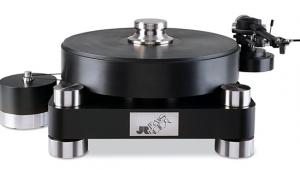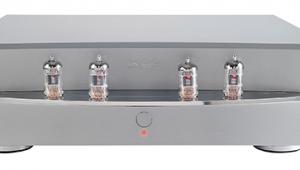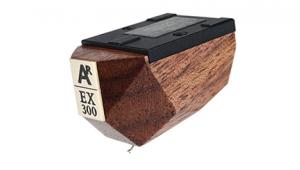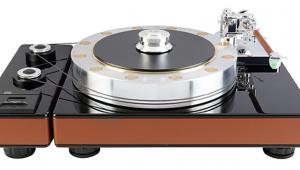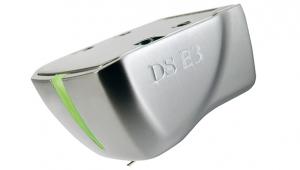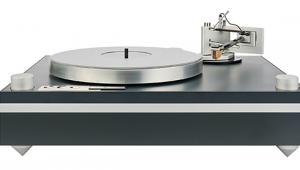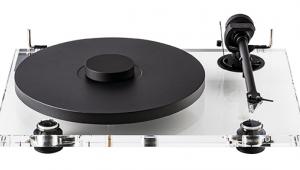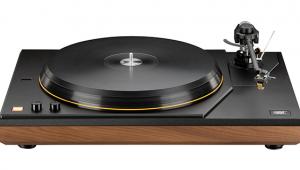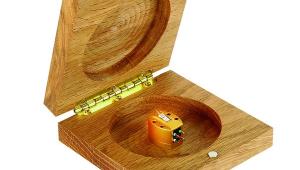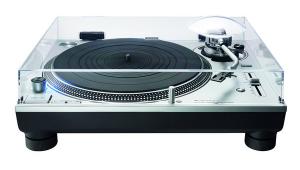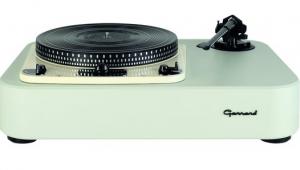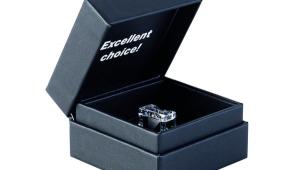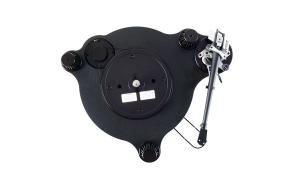Oracle Paris Mkv (£4750)
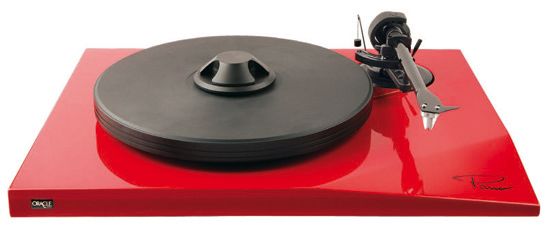
In 2009 Jacques Riendeau, brother of Oracle founder Marcel, recommenced work as chief designer in the re-formed Quebec company Oracle. The first result was the Delphi MkVI. Work from this was fed into the new Paris MkV turntable.
Revisions to the Paris suspension aimed for better lateral stability: a ‘semi-floating’ subchassis is supported not on metal springs but on two fibreglass rods which terminate in Sorbothane rings. The deck can be adjusted from below for levelling.
The new Paris main bearing is simpler than that of the Delphi MkVI, but uses a similar hightech material. Its 8mm diameter stainless steel shaft runs in two plain bushings of a high-temperature engineered thermoplastic called PEEK, which is also used for the thrust pad.
The acrylic platter has a central depression large enough to clear record labels which stand proud. It fits snugly onto the shaft, on top of the 150mm diameter aluminium subplatter around which the drive belt runs. There’s a neat screwdown Delrin record clamp too.
With built-in control electronics and AC motor identical to the Delphi MkVI, speed switching is by a neat pair of push buttons which simply toggle on and off, showing blue-lit indicators for 33.3 or 45, and there are fine speed adjusters at the back. The Paris comes with a compact plug-top 24V power supply, but users can upgrade to the ‘Turbo’ power supply.
The arm is recognisable as a Pro-Ject 9cc. But it’s a 9cc with a difference – you might say with shades of SME. There’s an adjustable paddle attached near the back end of the arm tube, dipping into a curved trough of silicone fluid.
Completing the package is the highoutput Oracle Paris MC cartridge. The magnesium-alloy body is made by Oracle, but the source of the cartridge itself is not disclosed. Its rated output of 1.6mV is sufficient for moving-magnet phono stage inputs.
TANGIBLE IMAGES
When we kicked off with Albert King’s Live Wire Blues Power [Stax 1002], the Oracle gave a great presentation of this classic live blues recording from the Fillmore West. King and his sadly uncredited band members were tangibly placed on stage, and you could marvel at the way bass, drums, rhythm guitar and organ almost whisper behind King, as he works the big auditorium with his mellow, foggy voice, then break out at full power behind him as he launches his impassioned guitar. On the uptempo ‘Please Leave Me’ they produced a fantastic groove, the drums sounding palpably live.
Moving on from the 1970s to the late 1980s with Tracy Chapman [Elektra 960774-2] and ‘Fast Car’, the Oracle combination gave a generally bright and open sound, revealing the subtle studio enhancement of the singer’s voice and the lively echo sound that seems to energise the drums. The bass was free-sounding and powerful, underpinning the music well. All this contributed to making the dynamic contrasts effective, in particular the eloquent way this track ends as quietly as it begins.
With the Barbirolli English String Music recording from 1967 [EMI ASD 521], it was obvious from the first chord of Elgar’s Introduction and Allegro that the Oracle could produce a very satisfying orchestral sound. The music emanated from a convincing acoustic space and the work’s central fugue was very well served by the clear positioning of the opposing strings.
VERDICT
This Paris combination is a great plug-and-play solution, yet one that also cleverly allows you to tweak to taste by means of the arm damper. Superbly finished, the Paris looks as desirable as Oracle intended, and sounds very good indeed, with excellent stereo imaging and a presentation that’s unfatiguing and musically involving.



